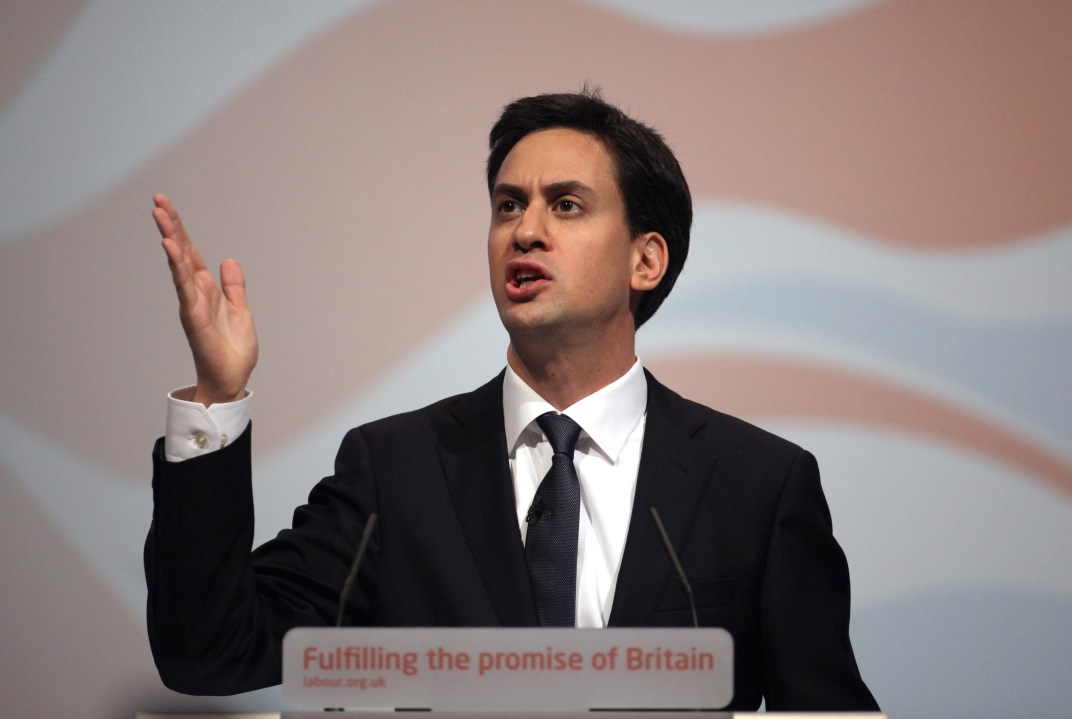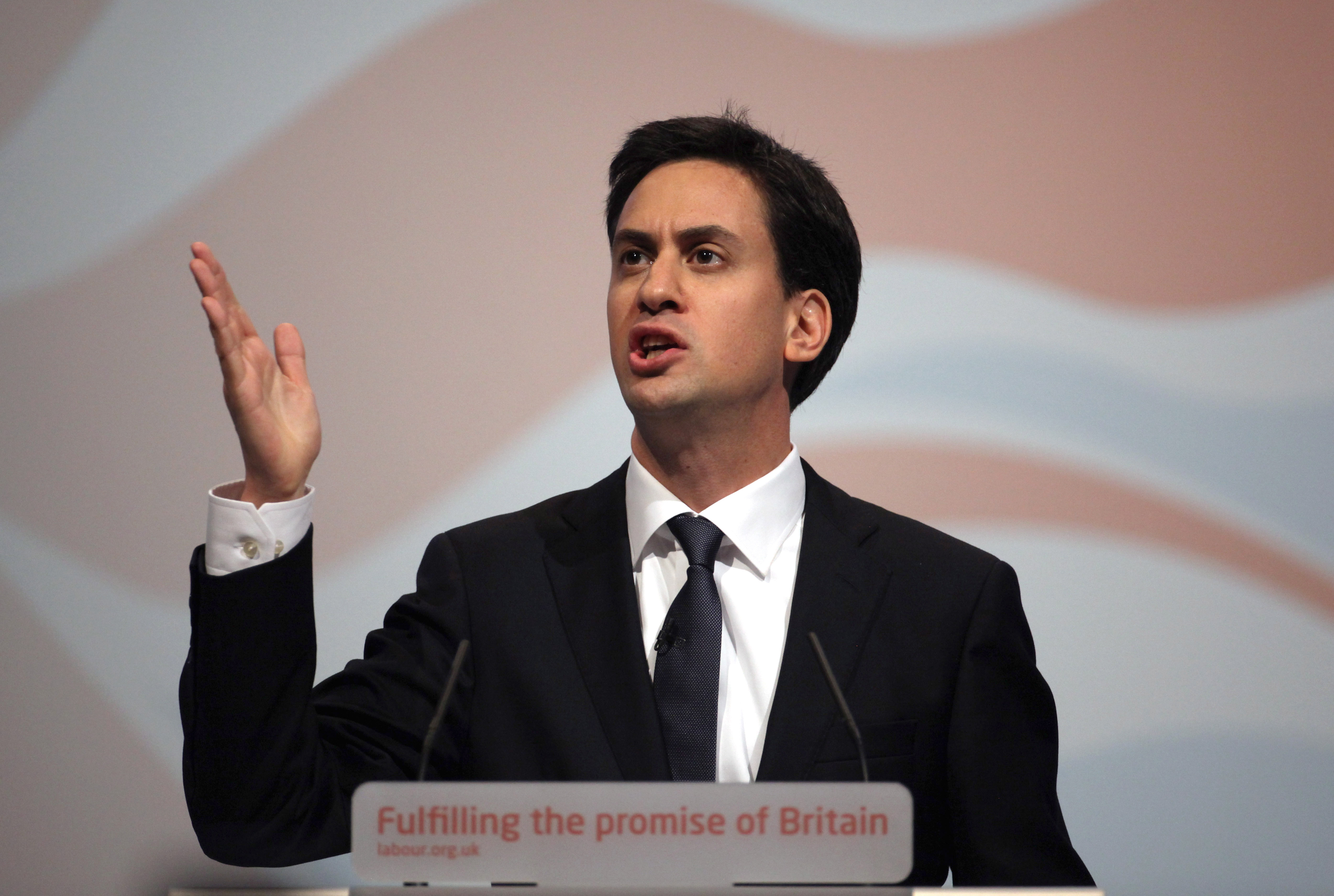Ed Miliband is a geek, a failure and a loser. All the press says so, so it must be true. Yet the apparent no-hoper retains the ability of the boy who confronted the naked emperor to change the terms of debate.
Ever since Mrs Thatcher, the working assumption of the British elite has been that it must always placate Rupert Murdoch. If that meant the corruption of government — the ruling party giving special treatment to Murdoch’s businesses, Murdoch giving the ruling party propagandistic support in return — so be it. If that meant successive Prime Ministers debasing themselves (and their country) before an overmighty citizen, who was not even a British citizen, then, and by all means, they would do that too. The idea that the rule of law did not cover Murdoch is at the root of the phone hacking debacle — although I regret to say that Lord Justice Leveson has shown no interest to date in investigating the real scandal.
For all His Lordship’s cowardice, let no one forget that there would not have been an inquiry or a proper police investigation if Ed Miliband had not ignored his Blairite colleagues and challenged the unchallengeable. He said what everyone in Westminster knew to be true, but no one dared say. He must have guessed that the Murdoch press would never say a kind word about him again — and if he did, his prediction has been fulfilled. But he spoke out in the national interest, while David Cameron stayed silent. And for that he deserves respect — even the respect of his political opponents.
This morning he has forced Cameron to recognise another truth. City bonuses were just about justifiable when banks were making profits. But the notion that loss-making bankers could enrich
themselves at public expense when they have been bailed out by the tax-payers is outrageous. (As I keep pointing out, it ought to be particularly outrageous to conservatives, who in other
circumstances are the first to denounce state subsidies for lame duck companies, but, somehow it isn’t.) My colleague Aditya Chakrabortty described Stephen Hester’s situation well
in the Guardian:
In other words, the highest paid public servant in the kingdom does not deserve a bonus. But as with Rupert Murdoch and the trade unions in the 1970s, high finance has mesmerised the state. Even though its demands make no sense, the coalition was willing to agree to them, until Ed Miliband threatened an emergency debate in Parliament and RBS blocked the bonus. Once again Miliband spoke for the country, while Cameron looked a weak and irresolute leader.‘The bank’s annual report shows his salary as £1.22m. Add in the benefits and pensions and the shares awarded as part of the company’s incentive scheme, and Hester was awarded a total of £5.85m last year. You may not have thought he was on so much, largely because the press normally quotes only the not-so-basic pay. But the rest would be what Harvard law professor and corporate-governance expert Lucian Bebchuk calls “camouflage” compensation — that is, payment expressly designed not to be noticed by the public and so not stir up outrage. Some might look at that £5.85m and shrug that this is the price you pay for someone to turn around a failed bank. Bear in mind, though, that Hester is head of a public enterprise; in that sense his excessive pay is a burden on the business. On average, Britons contribute £5,280 each in income tax every year: so effectively, 1,107 individuals worked flat out for a year to pay for Hester. “Whatever we decided to pay Stephen Hester, people would regard it as too much,” writes Alistair Darling in his memoirs. “Like it or not, bankers are paid a great deal of money, and if we were to salvage anything from RBS, I needed to get the best possible candidate and to pay him what was needed to do so.” With those sentences, the former chancellor neatly sums two of the main arguments for giving people at the top more money: that they are super-talented, and that without those sums they would simply leave. Yet Hester isn’t some kind of super-banker. Pay-watchers One Society point out that in 2010, while Hester’s total remuneration went up 71%, the value of his bank rose 33%. And over the past year, RBS’s share price has nearly halved. Nor are British bosses hotly sought-after abroad. Indeed, the list of British heads of global businesses is short and not especially sweet: it includes Tony Hayward, who was drummed out of BP, and Martin Sullivan who was head of, um, AIG, recipient of the biggest corporate bailout in US history.’
Unlike my colleagues in Westminster, I cannot see the future. I am a journalist not a fortune-teller. It is my misfortune to be the first son of a first son, rather than the seventh of a seventh son. I don’t have ‘the gift’. The pundits may be right when they use the psychic powers and tell us that Miliband will never be prime minister. But he is doing more to clean up Britain than any Leader of the Opposition before him.








Comments